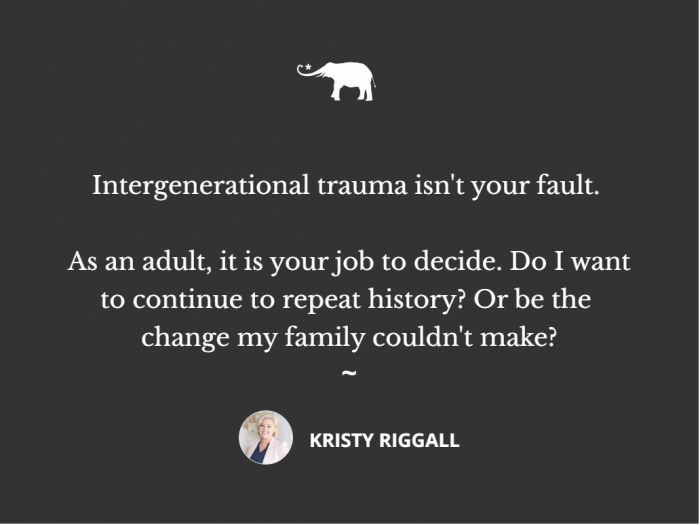View this post on Instagram
Relationships have evolved a lot since the 50s and 60s.
Divorce rates are skyrocketing, as is the epidemic of anxiety and depression.
I have dedicated the better part of the last seven years of my life to understand the why, through field research and my education. Here is a morsel of what I know to be true and factual.
Did you know the first 10 years of your childhood development sets you up for your adulthood and how you show up in your adult relationships? There are actually five peak waves that shape and mould you before the age of 18.
The child brain doesn’t fully develop and is largely “unconscious” until around the age of 8 to 10, and it continues to develop into the 20s. Those first 10 years are crucial, as a child relies solely on the conscious parent to teach them how to live life on life’s terms.
A parent teaches you how to relate to people in adulthood, readying you for “consciousness”—unless your parent is still unconscious due to their own childhood wounds and is stuck in a perpetual cycle of what I call an adult child parenting a child. This is detrimental to childhood development and your adult relationships.
Below is an example of what I would call an extreme form of an unconscious parent-child dynamic:
A 45-year-old man is admitted for overdose due to a narcotics addiction. He would often call his weary mother, crying, “Mom, they’re being mean to me”—he was clearly in a lot of emotional pain. Addiction (a broader subject) is bred primarily from emotional trauma, often within those first 10 years. His mother’s response? Nothing. She doesn’t come to see him, probably because of frustration. I could see that the relationship between this man and his mother is clearly disconnected.
This man’s outward behaviour was really a mere symptom of unhealed emotional trauma and pain.
The parent-child dynamic often breeds rejection and abandonment wounds when the following things happen:
How a rejection wound manifests itself in adult relationships.
Men and women who have had disconnected, avoidant, anxious, and depressed mothers will often, in adulthood, unconsciously seek disconnected, avoidant, anxious partners. To reinforce the childhood belief that “I’m not loveable,” “I’m unworthy of being loved in a healthy way,” and, “I don’t know how to receive love in a healthy way,” people in adult relationships will continue looking for proof that they are unlovable and unworthy of healthy loving connections. This is how they stay connected to their primary caregivers’ emotional pain, and they want to fix it so they can be loved the way they need.
“I don’t deserve this” is a common inner belief system along with a world of unmet desires and needs.
The convex of the rejection wound is the abandonment wound.
How an abandonment wound manifests itself in adult relationships.
Abandonment wounds often occur when the primary caregiver is not as freely available to the child—for example, the death of a parent, divorce, Mum going to work full time, Dad “never being around.” It often leads to one or both of the parents reeling in guilt and over-compensating through giving—”cotton wooling” the child and giving everything to the child they didn’t have themselves growing up. “Here, this is how I will show my love to you”—toys, holidays, things, excessive availability.
For the child, the belief system then becomes, “I deserve everything” and entitlement. “You have taught me I must be loved in this way, and if you don’t, my outward behaviour will show you exactly how deeply unhappy I really am.” Domestic violence can often occur when a person has a deep abandonment wound.
There is a real difference in protecting your child and over-protecting. Teaching healthy boundaries is so crucial in early life, as is providing guided independence—to make mistakes, to deal with tough situations like death, divorce, a house fire, or the death of a pet.
Holding space for a child is crucial in their development. But either suffocating them or under-nurturing them does them a disservice to them and their ability to learn about themselves.
There are also three other kinds of childhood wounds, which I won’t go further into, but they may resonate with you:
>> The wound of betrayal = the need for control.
>> The wound of humiliation = the need to comply with the pack and to “fit in.”
>> The wound of injustice = becoming socially and environmentally rigid in the way you act, behave, and appear to the world. This is to help reduce the betrayal and humiliation wounds.
Intergenerational emotional trauma exists on a micro and macro level. Unhealed emotional trauma has been proven to cause addiction and a plethora of other health issues. Yet, the brain can heal, and so can you and your relationships.
It first starts with understanding yourself and your own needs, knowing how to ask for them to be met, and trusting your needs can and will be met in adulthood. You just need the safe space to learn and lean into it with the right kinds of support systems to re-find your voice.
Delving into your childhood is not a slaying or blaming contest, it is merely a fact-finding mission to understand why you are the way you are in life and in relationships. When you understand yourself on a deeper level, you can then have compassion for others on a deeper level and your relationships will flourish.









Read 10 comments and reply